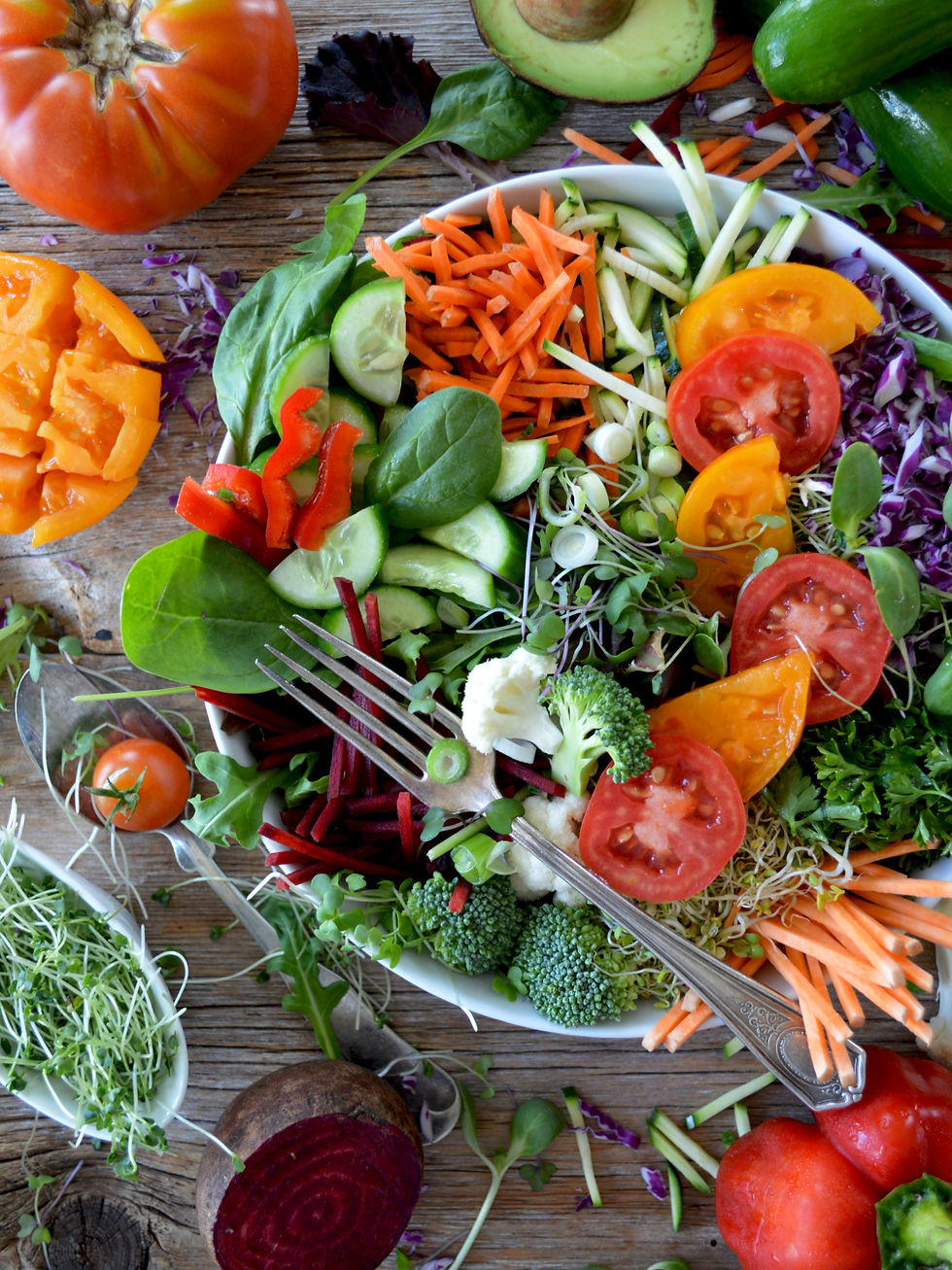Clean Eating Starts in the Mind
- Yolanda Whyte
- Aug 16, 2025
- 4 min read
Updated: Aug 23, 2025
Clean eating is a popular concept today, but what does it really mean? More importantly, what does your mindset and relationship with food say about your nutrition goals? Understanding these aspects can lead to healthier eating habits and a more satisfying approach to food. Let’s explore this vital topic together because what you eat and how you eat, influences what and how your child eats. Child nutrition starts with the family, habits and mindsets. I'm here for you all!

Understanding Your Relationship with Food
Every person has a unique relationship with food shaped by their life experiences, culture, and personal beliefs. For many, food provides comfort and joy. For others, it can provoke feelings of guilt or anxiety. Recognizing these feelings is crucial.
Take time to think about how you view food. Are you eating mindfully, or are you eating simply due to habit or emotional triggers? For example, a study conducted by the University of Colorado found that 40% of people use food as a coping mechanism for stress. Recognizing this can be the first step towards healthier habits. Mindfulness in eating helps you engage with what you consume and acknowledge the feelings that arise with it.
Emotional Triggers and Food Choices
Emotions tied to food often lead us to make choices that may not align with our nutrition goals. Picture this: after a long day, do you reach for a tub of ice cream or indulge in comfort foods like pizza? Are your food choices based on your income or the length of your lunch break? Celebrating with a large meal during special occasions can become common patterns too.
Identifying these emotional triggers is key. Consider keeping a food diary for a week where you note what you eat and the emotions you feel before and after eating. Research shows that journaling can help uncover patterns and change behaviors. For instance, many people find that swapping a caloric high-sugar snack with a fruit helps reduce feelings of guilt.
Setting Nutritional Goals
Now that we've examined the emotional aspects of our eating habits, it's time to set concrete nutrition goals. Ask yourself: What do you want to achieve through clean eating? This might be losing 10 pounds, having more energy, or improving your overall health.
When defining these goals, use the SMART criteria:
Specific
Measurable
Achievable
Relevant and
Time-bound
Instead of stating, “I want to eat better,” you could say, “I will add two servings of vegetables to my lunch five days a week for the next month.” This level of clarity gives direction to your efforts and allows you to measure your progress effectively. Most importantly, reward yourself when you stick to your goals.
The Impact of Mindset on Choices
Your mindset plays a significant role in your food choices. Many people with a growth mindset are open to trying new foods and healthy recipes. In contrast, those with a fixed mindset may cling to familiar comfort foods, which can limit dietary options.
If you see clean eating as a series of restrictions, it may lead to regret and overeating. Instead, try viewing it as an exciting opportunity to explore new, nutritious foods. For example, swapping refined grains for whole grains can help improve digestion and reduce the risk of chronic diseases, such as obesity and heart disease. This shift in perspective can make your dietary changes feel rewarding rather than punishing.
Practical Tips for Clean Eating
To make clean eating easier, consider these practical tips:
Plan Your Meals: Spend one day a week creating a meal schedule. This will reduce the chance of grabbing unhealthy options in a rush.
Stay Hydrated: We often confuse thirst with hunger. Carry a water bottle and aim to drink at least 8 cups a day.
Focus on Whole Foods: Incorporate foods like fruits, vegetables, whole grains, and lean proteins into your meals. The CDC reports that only 1 in 10 adults eats the recommended daily servings of fruits and vegetables, highlighting the importance of prioritizing them.
Be Mindful While Eating: Put away distractions during meals. Take time to enjoy and savor every bite.
Allow Yourself Treats: Healthy eating does not mean eliminating your favorite foods. Instead, enjoy treats in moderation to maintain a balanced approach.
Reflecting on Your Clean Eating Journey
As you embark on your clean eating journey, aim for balance rather than perfection. It's important to be gentle with yourself and make choices that align with your personal nutrition goals.
Reflecting on your food experiences can be transformative. You may realize some foods bring joy while others induce guilt. Use what you learn as a compass to navigate your food choices and cultivate a holistic understanding of your relationship with food.
Wrapping Up
Clean eating begins in the mind. Understanding your thoughts and feelings about food is essential for shaping your nutrition goals. By exploring emotions related to eating, setting clear objectives, and fostering a growth mindset, you can develop a balanced and healthy eating lifestyle.
Every journey is unique, and self-compassion is crucial throughout the process. Remember, making healthy choices is a form of caring for yourself. Embrace new experiences, enjoy learning, and celebrate each step you take towards a more mindful and fulfilling relationship with food!

.png)
Comments